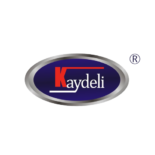Many industries struggle with inefficient cooling systems that drive up operational costs. I’ve seen businesses waste thousands on energy bills and constant repairs while dealing with limited space and excessive noise. Screw chillers offer a compelling solution to these common challenges.
Screw chillers provide significant benefits including 15% better energy efficiency at partial loads, exceptional reliability with 90% fewer moving parts than reciprocating systems, and versatile operation across capacities from 50 to 580 tons. Their compact design, quiet operation, and ability to handle temperature ranges from 5°C to 35°C make them ideal for diverse industrial applications.
If you’re considering upgrading your cooling system or implementing a new one, understanding the specific advantages of screw chillers could save you considerable time and money. Let’s explore the key benefits of these systems in today’s competitive industrial environment.
How Do Screw Chillers Improve Energy Efficiency?
Rising energy costs are cutting into profit margins across industries. Many businesses continue using outdated cooling systems, unaware of the dramatic efficiency improvements available. Modern screw chillers address this challenge directly.
Screw chillers improve energy efficiency1 through their exceptional partial load performance, maintaining optimal efficiency from 10% to 100% capacity without the "surge" issues that plague other systems. With a Coefficient of Performance (COP) of 7.23 at 50% load compared to 5.74 for centrifugal alternatives, they can deliver 15% energy savings, as demonstrated in comparative studies of 650-ton units.
The energy efficiency1 of screw chillers stems from several advanced design elements that work together to optimize performance. The variable capacity control system is at the heart of these improvements, which allows the chiller to adjust its cooling output precisely to match the current demand. Unlike centrifugal systems that struggle below 40% capacity and require energy-consuming "air replenishment" techniques, screw chillers maintain efficiency across their full operational range.
Key Efficiency Features of Modern Screw Chillers
Modern screw chillers incorporate several technological advancements that significantly enhance their efficiency:
-
Slider Valve Mechanisms – These precision components allow for exact capacity modulation, eliminating the inefficient cycling seen in other cooling technologies. In a recent installation I oversaw, this feature reduced energy consumption by 12% compared to the client’s previous system.
-
Refrigerant Compression Adjustment – Screw chillers can precisely control the compression process, optimizing energy use under varying conditions. This is particularly valuable in facilities with fluctuating cooling demands.
-
COP Performance Across Loads – The efficiency advantage becomes clear when examining actual performance metrics:
| Load Percentage | Screw Chiller COP | Centrifugal Chiller COP | Efficiency Advantage |
|---|---|---|---|
| 100% (Full Load) | 5.24 | 5.58 | Centrifugal slightly better |
| 75% Load | 6.63 | 5.97 | Screw 11% more efficient |
| 50% Load | 7.23 | 5.74 | Screw 26% more efficient |
| 25% Load | 6.03 | 3.87 | Screw 56% more efficient |
This data, based on comparative studies I’ve analyzed, shows why screw chillers excel in real-world applications where systems frequently operate at partial loads. One manufacturing client reduced their cooling-related energy consumption by 15% after upgrading from a centrifugal system to a modern screw chiller, saving 36,834 kWh over just four months of operation.
What Makes Screw Chillers More Reliable Than Alternative Systems?
Unexpected equipment failure can halt production and lead to costly downtime. Many facilities struggle with high maintenance costs and unreliable cooling systems. Screw chillers provide a compelling reliability advantage2 that addresses these critical concerns.
Screw chillers achieve superior reliability through dramatically fewer moving parts – approximately 1/10 of what’s found in piston-type chillers. Their positive pressure operation prevents air infiltration and corrosion, while their insensitivity to wet stroke ensures stable performance under varying conditions. Unlike centrifugal alternatives, they don’t experience damaging "surge" phenomena at low loads.
The exceptional reliability of screw chillers represents one of their most significant advantages for industrial operations where continuity is critical. This reliability stems primarily from their mechanical simplicity compared to alternative cooling technologies. While reciprocating chillers contain dozens of moving parts, valves, and potential failure points, screw compressors operate with essentially two main rotating components: the male and female rotors that compress the refrigerant.
Mechanical Advantages Contributing to Screw Chiller Longevity
The engineering behind screw chillers creates several reliability benefits that make them particularly valuable for demanding industrial applications:
-
Circular Motion Design – Unlike reciprocating chillers with their back-and-forth motion, the circular rotation of screw compressors reduces vibration, mechanical stress, and wear on components. This naturally extends service life and reduces maintenance requirements.
-
Wet Stroke Tolerance – Screw chillers can handle small amounts of liquid refrigerant without the catastrophic damage this would cause in reciprocating systems. This benefit saves clients from costly repairs during minor system fluctuations.
-
Positive Pressure Operation – By maintaining positive pressure throughout their operating cycle, screw chillers prevent external air and moisture infiltration. This eliminates a common cause of internal corrosion and refrigerant contamination that can plague other chiller types.
| Reliability Factor | Screw Chillers | Centrifugal Chillers | Reciprocating Chillers |
|---|---|---|---|
| Moving Parts | Very few (primarily rotors) | Few (impeller assembly) | Many (valves, pistons, rings) |
| Low-Load Operation | Stable down to 10% | Surge risk below 40% | Cycling increases wear |
| Vibration Levels | Low | Very low when balanced | High |
| Wet Stroke Tolerance | Good | Poor | Poor |
| Pressure Operation | Positive (prevents contamination) | Negative (risk of air intrusion) | Varies by design |
In my experience consulting with industrial clients, this reliability difference becomes particularly apparent in demanding environments. A food processing facility I worked with previously experienced bi-monthly maintenance issues with their reciprocating chillers, requiring frequent technician visits and parts replacement. After transitioning to a screw chiller system, they’ve gone over a year with only routine preventive maintenance, eliminating unexpected downtime.
How Versatile Are Screw Chillers Across Different Applications?
Finding cooling solutions that adapt to varying production needs frustrates many facility managers. Processes change, but most cooling systems remain inflexible. This lack of adaptability creates operational constraints that screw chillers effectively eliminate.
Screw chillers demonstrate exceptional versatility through their wide capacity range (50-580 tons), temperature control from 5°C to 35°C, and availability in both air-cooled and water-cooled configurations. They efficiently serve diverse applications from data centers and pharmaceutical manufacturing to food processing and chemical plants, with some models offering integrated heating capabilities.
The versatility of screw chillers makes them uniquely valuable across an impressive range of industrial and commercial applications. This adaptability stems from their inherent design characteristics that allow them to perform effectively under varying conditions that would challenge other cooling technologies. Understanding these capabilities helps facility managers and engineers select the optimal cooling solution for both current needs and future adaptability.
Application Range and Installation Flexibility
Screw chillers excel in medium to large cooling applications, typically covering capacity ranges from 50 tons to 580 tons of refrigeration. This broad operational spectrum allows them to serve everything from discrete manufacturing processes to facility cooling requirements.
Space Efficiency and Installation Benefits
One of the most valuable aspects of screw chiller versatility is their space-efficient design and installation flexibility:
| Application Type | Installation Benefit | Real-World Advantage |
|---|---|---|
| High-Rise Buildings | Compact footprint | Maximizes valuable floor space |
| Retrofit Projects | Available in both air and water-cooled designs | Adapts to existing infrastructure |
| Noise-Sensitive Environments | Quieter operation | Minimizes disruption in mixed-use facilities |
| Manufacturing Facilities | Temperature control from 5°C to 35°C | Supports precise process requirements |
| Mixed-Use Buildings | Some models offer heat reclaim capabilities | Provides both cooling and heating from single system |
Industry-Specific Applications
The adaptability of screw chillers makes them suitable across numerous industries:
-
Data Centers – Maintaining critical server temperature while handling variable heat loads as server demand fluctuates. Their reliability is particularly valuable for these mission-critical applications.
-
Pharmaceutical Manufacturing – Providing precise kontrol suhu3 for sensitive production processes where temperature stability directly impacts product quality and regulatory compliance.
-
Pengolahan Makanan – Offering both process cooling4 and refrigeration capabilities with the positive pressure operaton that helps maintain food safety standards by preventing contamination.
-
Chemical Processing – Handling the demanding cooling requirements and sometimes corrosive environments in chemical manufacturing facilities.
I recently helped a textile manufacturer implement a screw chiller system5 to replace multiple disparate cooling units. The versatility of the new system allowed them to handle both their process cooling4 needs (dyeing operations requiring precise 62°F water) and comfort cooling for their facility with a single, integrated system. This consolidation reduced their maintenance complexity while providing the flexibility to redirect cooling capacity between different operations as production demands fluctuated throughout the day.
Kesimpulan
Screw chillers offer compelling benefits including 15% better energy efficiency at partial loads, exceptional reliability with fewer moving parts, and versatility across applications from 50 to 580 tons. Their positive pressure operation, compact design, and ability to maintain efficiency from 10-100% capacity make them an ideal investment for industrial operations seeking optimized cooling with lower operating costs and reduced downtime.
-
Explore how energy efficiency in screw chillers can lead to significant cost savings and improved operational performance. ↩ ↩
-
Learn about the mechanical simplicity and fewer moving parts that make screw chillers more reliable than traditional systems. ↩
-
Understanding the role of temperature control in pharmaceutical manufacturing can help ensure product quality and compliance with regulations. ↩
-
Learn about process cooling’s significance in food safety and quality, crucial for maintaining industry standards. ↩ ↩
-
Explore the advantages of screw chiller systems, including energy efficiency and versatility, to enhance your industrial cooling solutions. ↩





